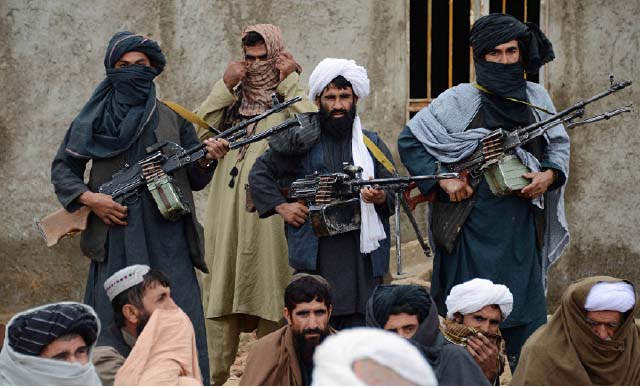KUNDUZ CITY - Local officials say more than 300 schools are under Taliban’s control in northern Kunduz province, where the insurgents recruit students for fighting.
However, the militant group vehemently denies recruiting schoolchildren as fighters. It says children’s recruitment as fighters is forbidden under Taliban’s policy and the Islamic Shariah.
Education in the province was badly affected during the siege of Kunduz City by Taliban militants for a few days. The strategic city, which fell to the rebels on September 25, 2015, was recaptured by the security forces after a two-week clearing operation.
In addition to huge losses inflicted on the people and damage done to government facilities, 150 schools were also closed. Education department spokesman Abdul Basir Waziri told Pajhwok Afghan News thousands of boys and girls were enrolled in the schools closed.
Government’s concern
Kunduz officials explain of the 497 schools in the province, more than 300 are located in areas under Taliban’s control. The fighters mark absent the teachers and students who do not come in time. A long absence may translate into a teacher’s sacking or a student’s rustication.
Acting Governor Hamdullah Danishi admitted the Taliban even influenced transfers and employment of teachers. Without giving details of the areas under militant control, he confirmed the rebels were active just one kilometre from Kunduz City.
In parts of Imam Sahib, Dasht-i-Archi, Qala-i-Zal, Khanabad and Chahar Dara districts, the guerrilla presence had been taking a heavy toll on education. “The Taliban train students against the government and recruit them for fighting. Our elders should make a decision on the issue,” he demanded.
Version of education department
The acting director of education rejected as baseless claims about the closure of schools. Not a single schools was shut and the education process was going on smoothly, he insisted.
Students of five schools that were destroyed in recent clashes are going to nearby schools. They had appeared without any major problems in their annual exams, the official maintained.
Students await stability
Although some schools were closed due to insecurity, they continued with their studies by going to other schools, said Abdul Malik, an eighth-grade student. Enrolled at the Abdul Fatah School in Chahardara district, he appeared in the annual exams elsewhere.
He asked the government to ensure the security of schools and keep students from running into a similar situation in the future.
Anti-corruption struggle
Education officials claim curbing corruption in the department, but residents of the province allege teacher posts have been sold over the past few years.
“My daughter has done BA in education. This year, I tried to find her a job in a school. I literally toiled for months, but could not find any job for her,” a government employee said on condition of anonymity.
School security councils
According to education officials, councils for protecting schools have been set up in the provincial capital and districts of Kunduz. They are responsible for providing security for schools.
A member of the council in Khanabad district, Abdul Saboor, said the body was set up a year back. All members of the council are bound to share problems of the schools with the education department and protect them from militant attacks.
Accommodation problem
The acting director of education says more than 330,000 male and female students are taught by over 8,000 teachers at 497 schools across the province. Of them, 270 schools have their own buildings.
This year, the department plans to construct 45 schools with financial support from the Ministry of Education and donor agencies. Work on 16 school buildings is underway in different parts of the province. (Pajhwok)
Home » Afghanistan » Taliban Control 300 Kunduz Schools, Recruit Students
Taliban Control 300 Kunduz Schools, Recruit Students

